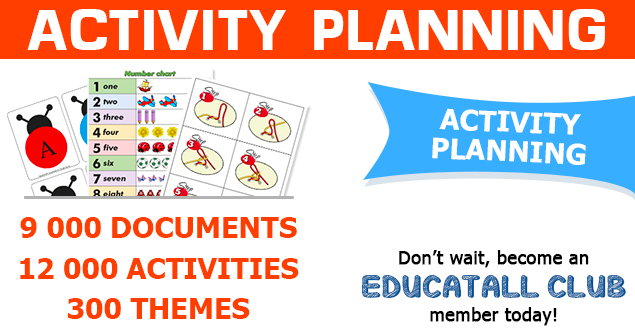
Helping a child with difficulties when the parents refuse to recognize the existence of a problem
Question:
How can I help a child with language and motor skill delays when the parents refuse to admit that their child has learning difficulties? I have tried several things with him but since I do not have a diagnostic or help since I work in a private daycare, I am exhausted. The child is almost three years old but his reactions resemble those of a one and a half year old. The only thing which helps is the fact that he understands a few instructions. I am tired of being the only one making efforts for this child.
I understand your feeling of helplessness perfectly well. Working with a child who is experiencing learning difficulties, regardless of the level of difficulty, is very trying. This child requires a greater effort and more energy on your behalf. Furthermore, in this case, you are the only one working for this child since you seem to say that the parents refuse to recognize the existence of a problem. One thing is certain, you need help. I will suggest a few strategies you may apply which may, hopefully, make daily life easier.
First of all, it is obvious that this child needs extra help. An evaluation to determine which developmental stage the child is in is required. This will help you conceive activities which will fulfill his stimulation needs. You may use an observation chart to evaluate the child's strengths and weaknesses. Create your own chart or use one of the many charts which are readily available. Once his weaknesses or difficulties have been identified, you can conceive or adapt your activities accordingly. Until the child has met with a professional, such as an occupational therapist or a speech therapist, who is able to identify specific goals for the child, I suggest you stimulate his general development. Furthermore, to make daily life simpler, you may introduce a series of pictograms which correspond to his needs. You could, for example, display illustrations representing the daily routine, the steps involved when getting dressed, brushing his teeth, etc. All the situations which are difficult for the child could be illustrated. He will then be able to refer to them and follow the group more easily. You could also illustrate daycare rules: speak quietly, walk, eat calmly, etc. Illustrations should be positive. For a child experiencing difficulties, negative instructions involving "don't" are very difficult to understand. In general, I think it would be profitable for you to list, in order of priority, the moments or occasions when it is most difficult for the child to follow the group. Thus, you will be able to identify what you must work on first. It is important that you work on a single moment or make a single change at a time.
Another important part of your work in this situation is to help parents realize that their child is experiencing difficulties. I have had to approach parents regarding their child's difficulties in the past myself and I know firsthand just how challenging it can be. I suggest you begin with an indirect intervention. You could, for example, provide a flyer or document regarding child development to all parents. This flyer could list elements children should master based on their age. You could possibly include a list of elements which may be considered a cause for worry. I often say that it is much easier for parents to accept something if they come to the conclusion themselves. Following this, you could observe the child and target facts which you may discuss with the parents. You may tell the parents that early intervention is important to overcome their child's difficulties. List the advantages of acting precociously. The child must be prepared for kindergarten. Meeting with a specialist can only help him. The most important thing to keep in mind when approaching parents in this situation is that their rhythm must be respected. Put yourself in their shoes. Accepting that your child is experiencing difficulties is not easy. In this case, the parents are most likely still in denial. Slowly, they should begin to accept the situation and rally together to find a solution. As early childhood educators, we must be patient, but there are limits. If the parents continue to refuse to accept the situation and search for a solution to the problem, resorting to more severe measures may be necessary. This child needs help and soon. You must make sure he is not a victim of educational neglect.
I strongly hope these suggestions will guide you. Your situation is particular and I can easily imagine the daily difficulties it presents. I wish you the best of luck.
Maude Dubé, Special needs teacher
No element of this text may be copied, reproduced, distributed, published, translated, downloaded, posted, or transmitted, in any way, without prior written authorization from Educatall and the copyright holder. Elements may be posted and/or downloaded solely for personal and non-commercial use provided no modifications are made and all notices of intellectual property are fully shown (name of the author, title of the article, name of the website, date the text is used and the date of the part in question).

 Home
Home Theme activities
Theme activities
 Babies and toddlers
Babies and toddlers
 Arts and crafts
Arts and crafts
 Science
Science
 Creative recipes
Creative recipes
 Tips and tricks
Tips and tricks
 Special needs
Special needs
 Extra activities
Extra activities
 Educ-TV
Educ-TV
 Newsletter
Newsletter  Online store
Online store Educatall club
Educatall club

